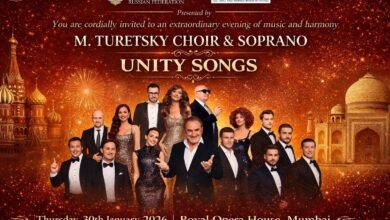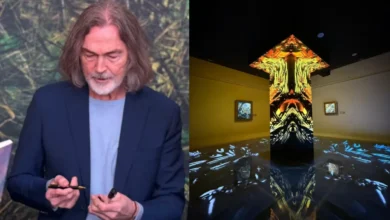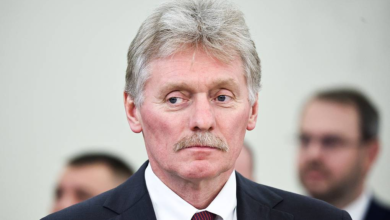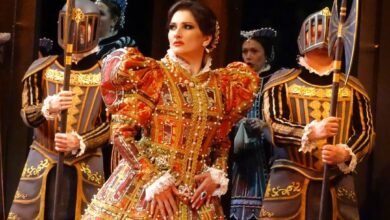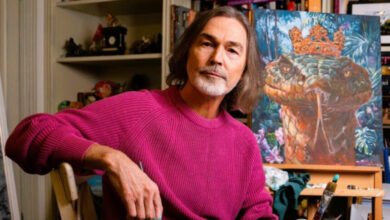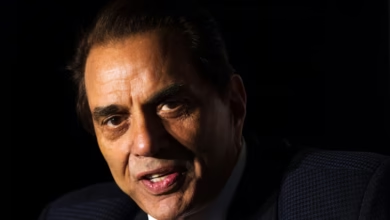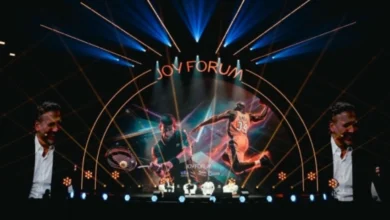The Mariinsky Theater has staged Bellini’s opera The Puritans

A true masterpiece of bel canto, The Puritans is a rare phenomenon on our musical landscape. Italian Vincenzo Bellini’s farewell opus requires such an exceptional ensemble of singers that it rarely appears on the posters of even the world’s best opera houses. After a century and a half, the Mariinsky Theatre took the risk of recalling this opera and won, because the phenomenal Albina Shagimuratova sang the leading female role; Valery Gergiev was at the conductor’s desk and the opera debutant Vladislav Furmanov was in the production director’s chair.

Paradoxically, but it is a fact: contrary to the nature of opera theater, in reality today performances are made for a wide variety of reasons, and only in the very last place for the vocal capabilities and interests of the singers. The Mariinsky Opera has finally broken the vicious circle of this pernicious tradition and presented a production in which the main role is given to music in interpreting the human voice. At the same time, “the opera must evoke tears, horrify people, and make them die from singing,” the composer wrote to his librettist.
This last opera by Bellini, which he commissioned from Rossini and which had its world premiere in January 1835 in Paris at the Théâtre Italien eight months before the death of its creator at the age of just 33, is based on a libretto by the poet Carlo Pepoli based on the French play Roundheads and Knights by François Ancelot and Joseph Xavier Boniface (Sentin). The plot turned out as it should in an opera: as passionate as it is absurdist, although it has a quite definite historical setting: the events unfold in revolutionary England in the mid-17th century, during the civil war, when the Protestant republicans fought the Royalist Catholics.
The main love couple are, of course, representatives of the opposing sides: the soprano is a supporter of Cromwell, the tenor is a supporter of the Stuarts. But oh wonder! No one dies in this opera, although the heroes’ path to happiness is thorny and runs through imaginary treason, escape, madness, arrest and even a death sentence that will remain unenforced. In a word, the abyss of feelings proves stronger and more attractive than common sense.
The political allusions of the plot remain unclaimed by the director. He in alliance with a trio of artists – Galina Filatova (scenery and costumes), Anton Nikolaev (lighting), Alexandra Agrinskaya (video) creates an environment in which one can fit absolutely any “grand opera”, dominated by kilometer-long plumes and capes, exaggerated wigs and costumes in a pseudo-luxurious (unfortunately, not complementary for the artists) style with a vampuchny tinge. And entertaining the audience with endless play with different levels of the stage, while remaining on the same level of directorial skill and inspiration. But the luxurious “Puritan quartet” of soloists becomes the successful chamber tone of the premiere: Elvira – Albina Shagimuratova; her lover Lord Arthur Talbot – Sung Chi Hoon; her uncle and Puritan leader Sir George Walton – Magerram Huseynov and his friend Sir Richard Fort – Vladislav Sulimsky. In the small but regally beautiful role of Henrietta the Exiled Queen appears the Grand Prix winner of the last Tchaikovsky Competition, Zinaida Tsarenko, to whom the Mariinsky Theatre is now constantly presenting opportunities for creative maturation, clearly outstripping the process of accumulating her creative potential.
“Opera should evoke tears, horrify people, and make them die from singing.”
In “The Puritans”, unlike other Bellini operas (for example, “Norma” or even “Somnambula”) there are no “passable” numbers: every aria, every duet, every ensemble is the embodiment of true beauty. Therefore, if there are any “rough edges”, their price is much higher than in other operas. And the sound quality of the chorus clearly requires considerable improvement, just as the orchestra noticeably needs more rehearsals in order to eliminate discrepancies with the singers. At the same time, however, the musicians under Valery Gergiev carefully and carefully tried to “accompany” the soloists and exquisitely performed the instrumental interludes, generating the necessary energy for the performance.
South Korean tenor Song Ji-Hoon, the “golden” winner of the last Tchaikovsky Competition, also has all the necessary cloud notes in his arsenal, but his stage charisma and acting skills are still clearly lacking to an appropriate degree. But for bass-baritone Magerram Huseynov and baritone Vladislav Sulimsky the roles prescribed for their roles by the composer fit perfectly into the gallery of their vocal and acting achievements.
Soprano Albina Shagimuratova performs absolutely marvelous miracles, creating a unique feeling that her vocal capabilities are far more extensive than those required to perform this archly complex role. Her sumptuous voice has a huge palette of nuances and shades, but there is no hint of “chemical” imitation of tessitural complexities, and her phrasing is filled with emotional shimmers and inner strength in psychological climaxes. One enjoys her voice and trusts it, as it is intended in the highest examples of operatic art.


